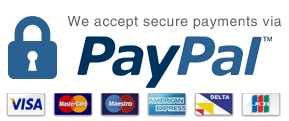In today's digital landscape, website security is paramount. Building trust and ensuring the protection of your visitors' data is essential for a successful online presence. In this blog post, we will delve into the importance of website security and provide you with essential steps to enhance security measures on your website.
By prioritizing website security, you can protect customer data, safeguard against cyber threats, and boost customer confidence. Let's explore how you can enhance website security and fortify your online presence! 🔒
Implement SSL/TLS Certificates:
Secure Sockets Layer (SSL) or Transport Layer Security (TLS) certificates encrypt data transmitted between a user's browser and your website. By implementing SSL/TLS certificates, you establish a secure connection and ensure the confidentiality and integrity of data exchanged with your visitors.
Keep Software Updated:
Regularly update your website's software, including the content management system (CMS), plugins, themes, and other components. Software updates often include security patches that address vulnerabilities and protect against potential threats.
Use Strong and Unique Passwords:
Enforce strong password policies for all user accounts on your website, including administrators and users. Encourage the use of long, complex passwords and consider implementing two-factor authentication (2FA) for an extra layer of security.
Regularly Back Up Your Website:
Perform regular backups of your website's data to protect against data loss in the event of a security breach or system failure. Store backups securely, either offline or in an encrypted cloud storage service.
Employ Web Application Firewalls (WAF):
Implement a Web Application Firewall (WAF) to protect your website from common security threats, such as SQL injection attacks, cross-site scripting (XSS), and distributed denial-of-service (DDoS) attacks. A WAF acts as a protective barrier between your website and potential threats.
Conduct Vulnerability Scans and Penetration Testing:
Regularly perform vulnerability scans and penetration testing to identify any weaknesses or vulnerabilities in your website's security. This proactive approach helps you uncover potential vulnerabilities before malicious actors exploit them.
Educate Users and Staff:
Educate your website users and staff on best practices for online security. Encourage them to use strong passwords, be cautious with sharing personal information, and avoid clicking on suspicious links or downloading files from unknown sources.
Monitor and Respond to Security Threats:
Implement a system to monitor your website for security threats and promptly respond to any detected incidents. Monitor logs, utilize security plugins, and consider implementing a security information and event management (SIEM) solution to proactively manage security threats.
Conclusion:
Enhancing website security is vital for building trust, protecting customer data, and ensuring a successful online presence. By implementing robust security measures, such as SSL/TLS certificates, regular updates, strong passwords, backups, firewalls, vulnerability scans, and user education, you can fortify your website against cyber threats and boost customer confidence. Prioritize website security as an integral part of your online strategy and establish a safe and trustworthy digital environment for your visitors.





